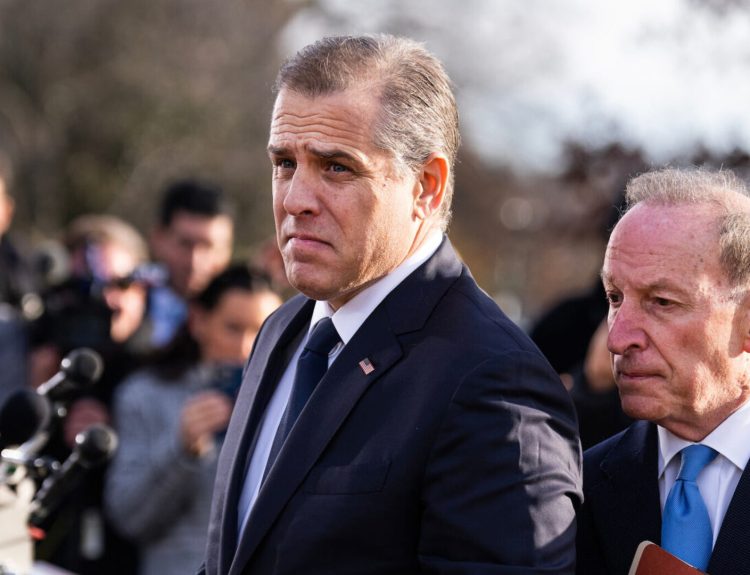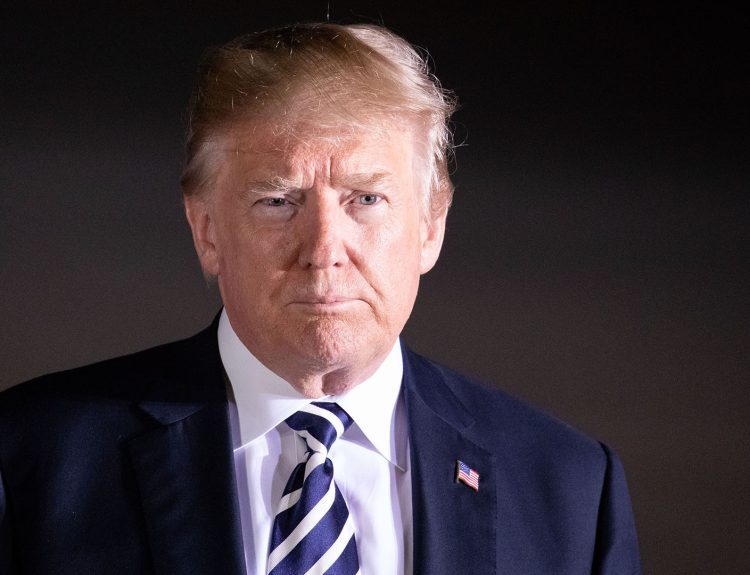The rulings mark a setback for former President Donald Trump in the case that started when the FBI searched Mar-a-Lago in August and seized thousands of government records, including some marked classified.
While Trump claims privilege over the documents, the federal judge disagreed, allowing the criminal investigation to move forward using the seized records as evidence, thus handing over a win for the Department of Justice. The decision came down twice in one week against Trump, who has been fighting to keep records seized from his Florida estate out of the hands of investigators.
Denying Access to CIPA Sec 4 Filing
Judge Aileen Cannon denied former President Trump’s request to access Special Counsel Jack Smith’s CIPA Sec 4 filing. The CIPA Sec 4 filing details Smith’s rationale for redacting classified information in documents connected to the case.
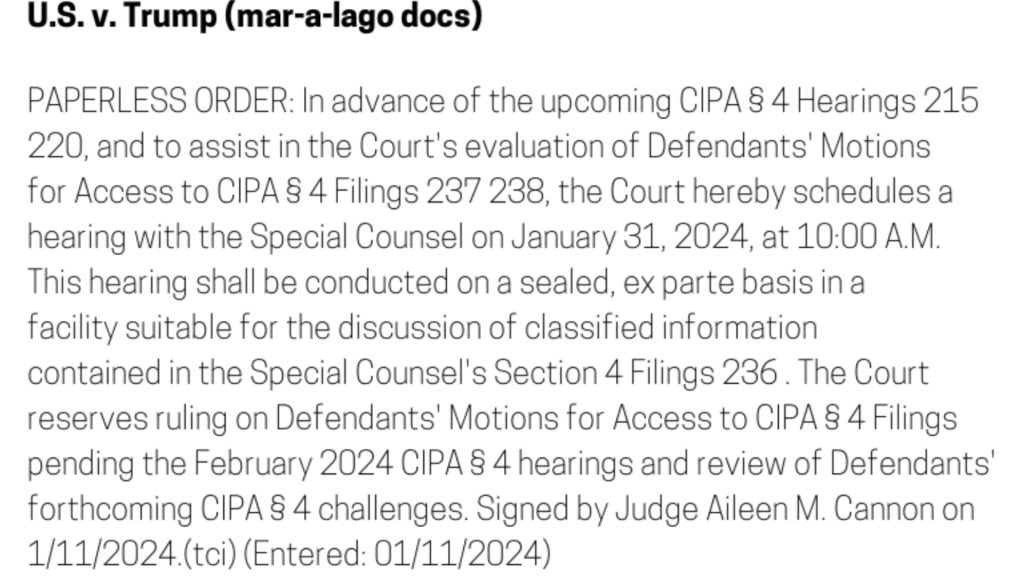
While Trump’s legal team argued that denying them access prevented adversarial litigation, Judge Cannon found Smith had “carried his burden” to withhold the sensitive materials.
Refusing Nauta and De Oliveira’s Request
Judge Cannon also rejected requests from Trump’s co-defendants, Walt Nauta and Carlos De Oliveira, to view confidential presidential records they allegedly moved between locations at Mar-a-Lago. Smith had contended that access to the records was unnecessary for Nauta and De Oliveira’s defense.
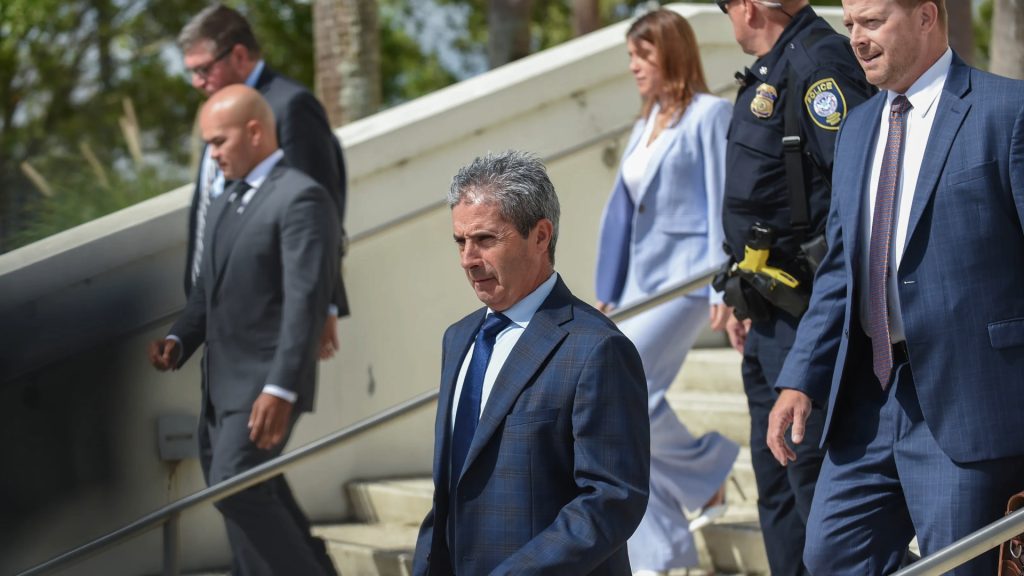
Judge Cannon agreed, finding that “the Special Counsel has made a sufficient showing that Defendant Nauta and De Oliveira’s review of the materials produced in classified discovery would not be ‘relevant and helpful’ to their defense.”
Access to Classified Information During Presidency
During his presidency, Trump had broad authority to declassify and share classified information. However, upon leaving office in January 2021, Trump lost his declassification authority and access to classified information.
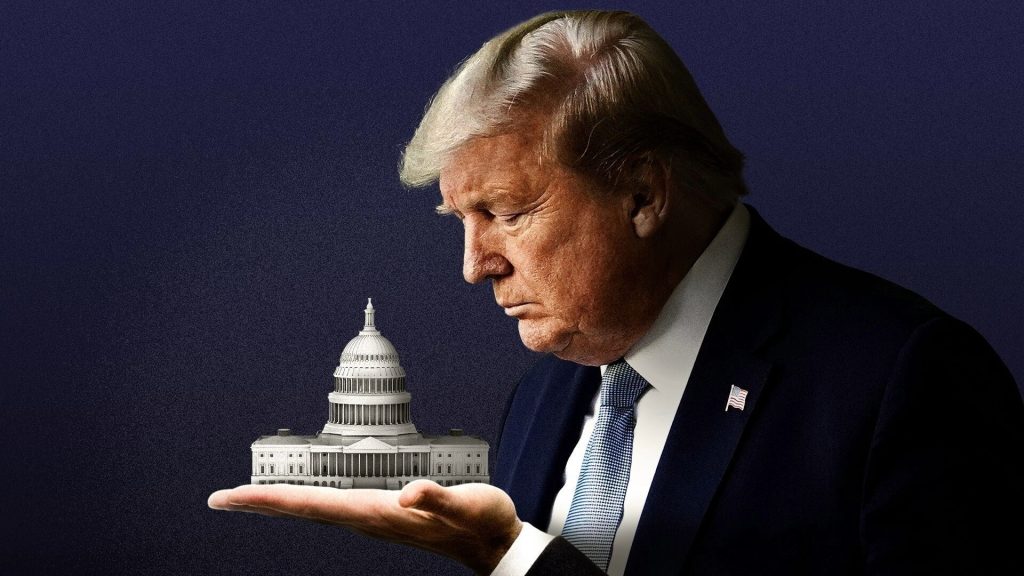
According to intelligence officials, Trump took boxes of records, some marked as classified, from the White House to his Mar-a-Lago estate in Florida.
Retrieval Efforts and Obstruction Charges
The National Archives and Records Administration made multiple requests for the records and eventually retrieved 15 boxes in January 2021.

However, the Archives determined some records were still missing and notified the Department of Justice. Federal investigators executed a search warrant at Mar-a-Lago in August 2022 and recovered additional classified records.
Ongoing Legal Proceedings
The case is before Judge Aileen Cannon, a Trump appointee, in the U.S. District Court for the Southern District of Florida.

Judge Cannon has faced criticism for rulings perceived as favoring Trump, such as delaying the pre-trial schedule. However, Judge Cannon has issued some rulings against Trump, recently denying his request to access some of the Special Counsel’s filings.
The Special Counsel’s Office Files CIPA Motions
The Special Counsel’s Office, led by Jack Smith, has filed multiple motions under the Classified Information Procedures Act (CIPA) regarding highly sensitive government documents seized from Mar-a-Lago.

According to sources, some documents were marked as classified or top secret. The CIPA motions aim to determine how this sensitive evidence will be handled during the legal proceedings.
The Charges Against Trump and His Associates
The Department of Justice charged former President Trump with illegally retaining classified records and obstructing the government’s attempts to retrieve them. Trump pleaded not guilty to all charges.
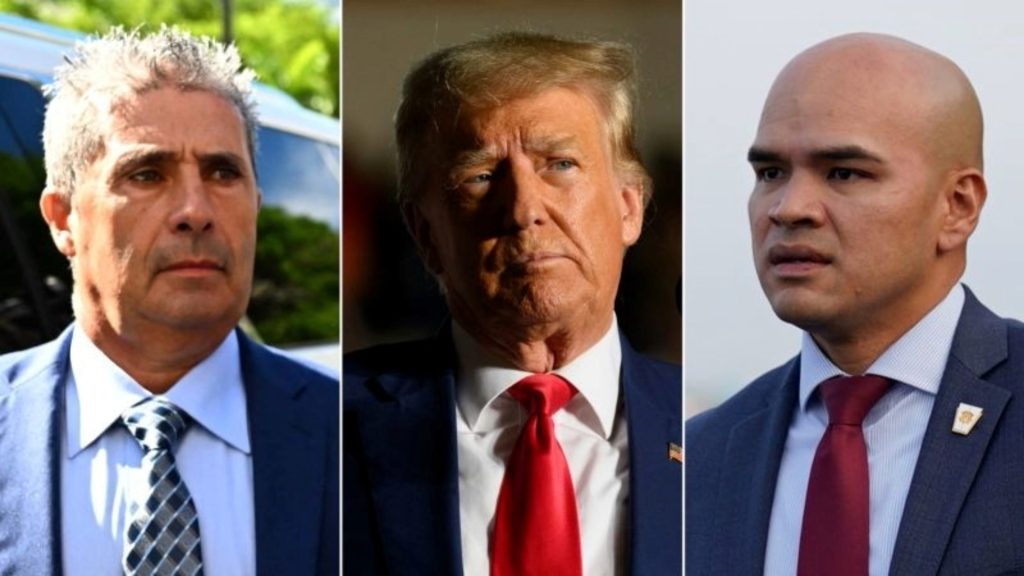
Nauta and De Oliveira, accused of moving boxes of sensitive materials around Mar-a-Lago and deleting security footage, also pleaded not guilty to charges including conspiracy to obstruct justice. The government alleges some materials related to national defense, though Smith claims evidence shows Nauta and De Oliveira acted without a specific inculpatory purpose regarding the 102 classified documents.
Claim of Executive Privilege
Trump’s attorneys argued that as a former president, Trump retained rights to executive privilege over the documents seized from Mar-a-Lago. They claimed that executive privilege applied because the documents relate to Trump’s time as president.
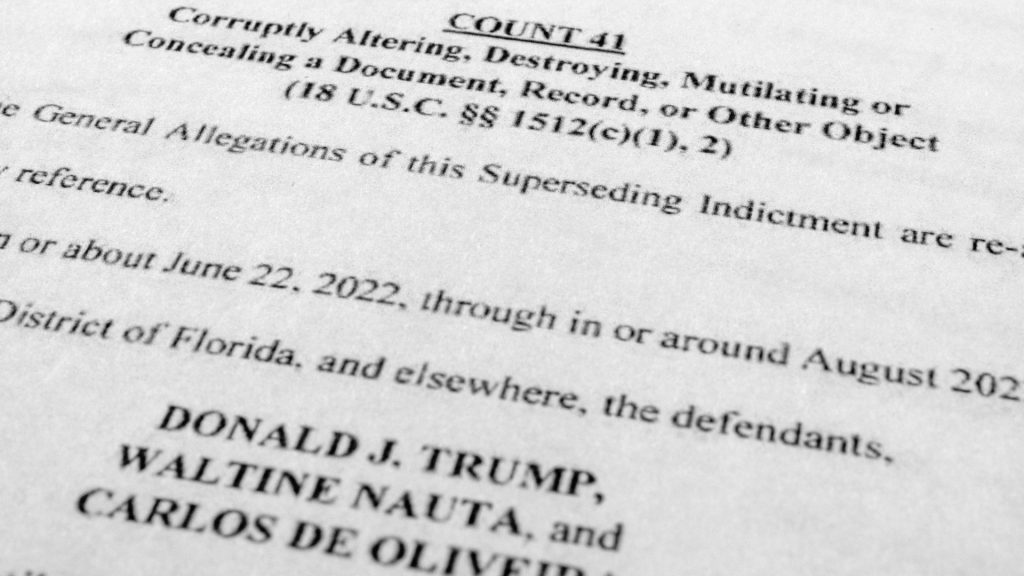
However, legal experts argue that executive privilege does not apply to personal records or in cases of possible criminal conduct. The Department of Justice asserted that Trump could not claim executive privilege over the documents since they were not official presidential records and because Trump is no longer president.
Need to Review Documents
Trump’s lawyers argued that in order to properly defend Trump, they needed to review the seized documents to determine which ones were privileged or personal. They claimed that denying Trump’s lawyers access to the documents would hamper Trump’s ability to defend himself in court.

However, Cannon ruled that Trump’s lawyers had not shown that reviewing the sensitive government documents was necessary for Trump’s defense at this stage in the proceedings.
Violation of Fourth Amendment Rights
Trump’s attorneys argued that the FBI search of Mar-a-Lago violated Trump’s Fourth Amendment rights against unreasonable search and seizure. They claimed that the search warrant was overly broad and that the FBI had improperly seized privileged and personal documents during the search.
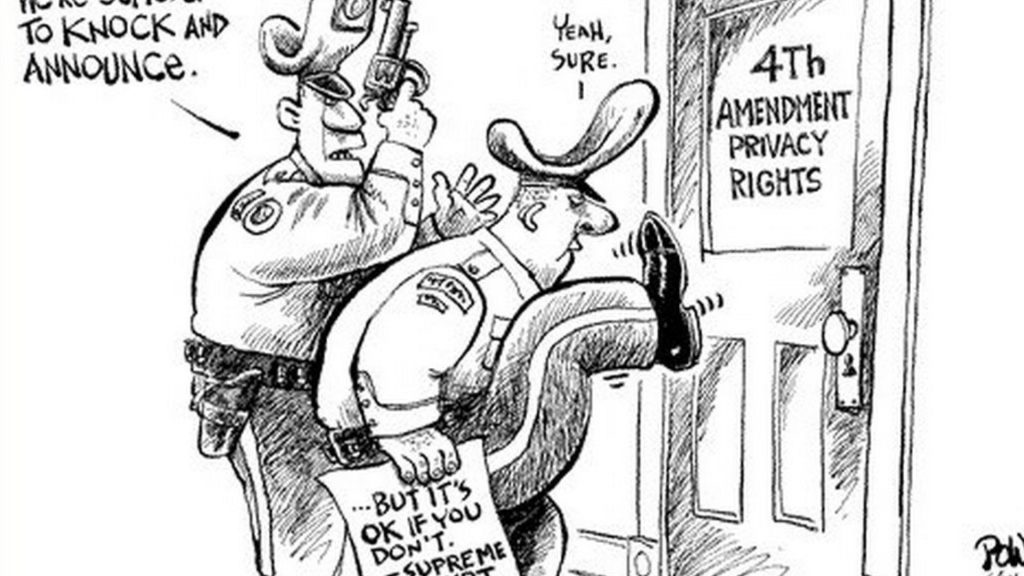
However, legal experts argue that the FBI had probable cause to obtain the search warrant based on evidence that classified documents were being improperly stored at Mar-a-Lago. The search warrant also specified the documents to be seized.
Scrutiny and Criticism
Cannon has faced scrutiny and criticism for rulings perceived as favorable to Trump, who appointed her to the court. She previously delayed the case schedule in a move seen as slowing the proceedings.
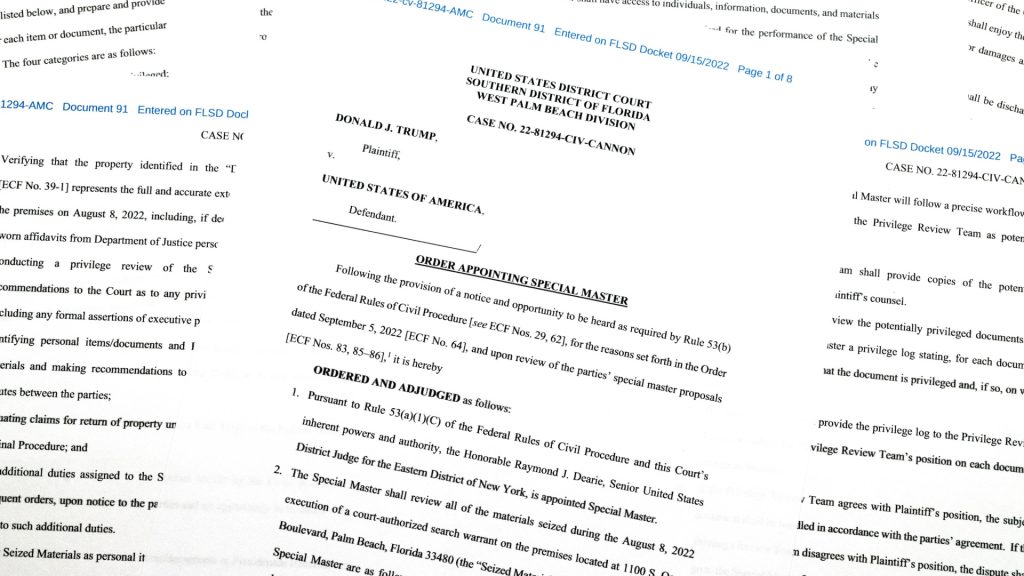
However, Cannon’s recent rulings against Trump’s requests indicate her intent to approach the case impartially according to the facts and the law.
Implications of the Rulings for DOJ Probe
The rulings handed down by Judge Cannon represent significant setbacks for Donald Trump in his efforts to obstruct the Department of Justice’s ongoing investigation into his handling of classified documents.
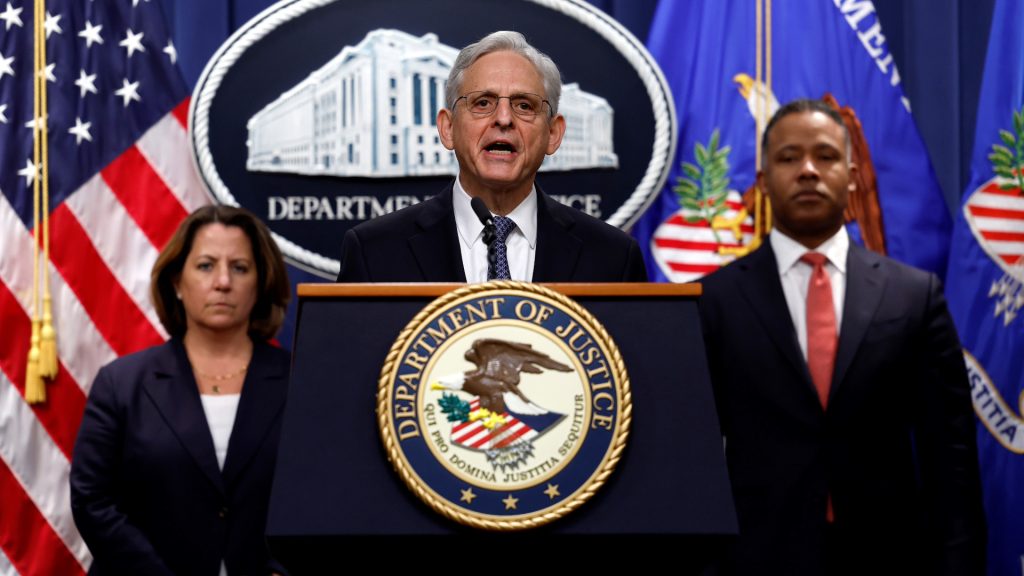
By denying Trump’s request to access Special Counsel Smith’s CIPA Sec 4 filing, which details proposed redactions to sensitive materials, Cannon has refused to allow Trump to gain insight into the scope and direction of the DOJ’s probe.
What’s Next in the Legal Battle Over Documents
The Special Counsel is also likely to continue filing motions to prevent unnecessary disclosures of classified information. Allowing Trump and his co-defendants broad access to sensitive government documents could compromise national security.
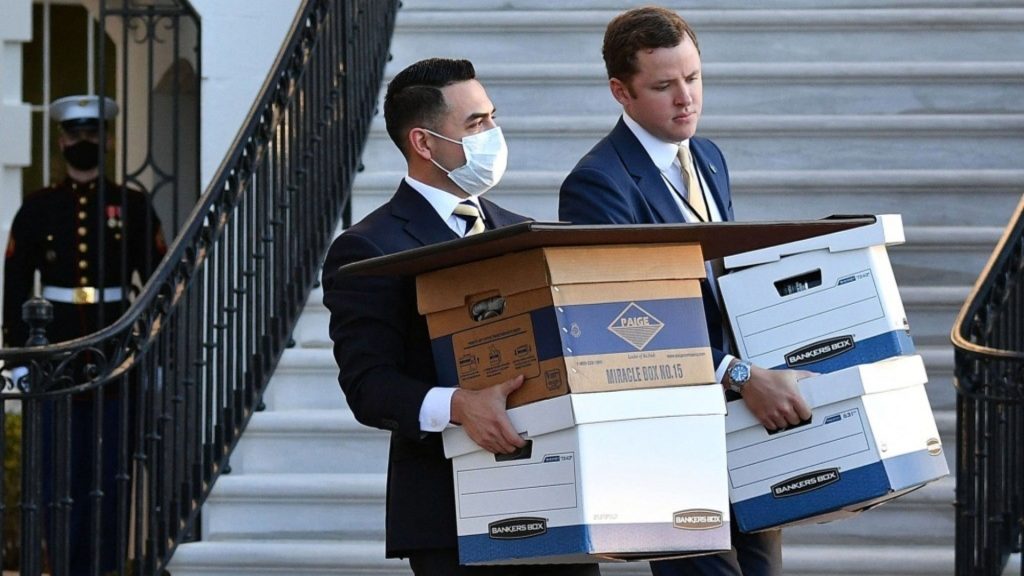
Judge Cannon’s ruling denying access to Nauta and De Oliveira suggests she may be receptive to the Special Counsel’s arguments for limiting disclosures.
Cannon Affirms DOJ Legitimacy
The FBI search of Mar-a-Lago and Trump’s legal woes continue to unfold dramatically. Though Trump decries the probe as a partisan witch hunt, Cannon’s rulings affirm the legitimacy of the DOJ’s investigation.
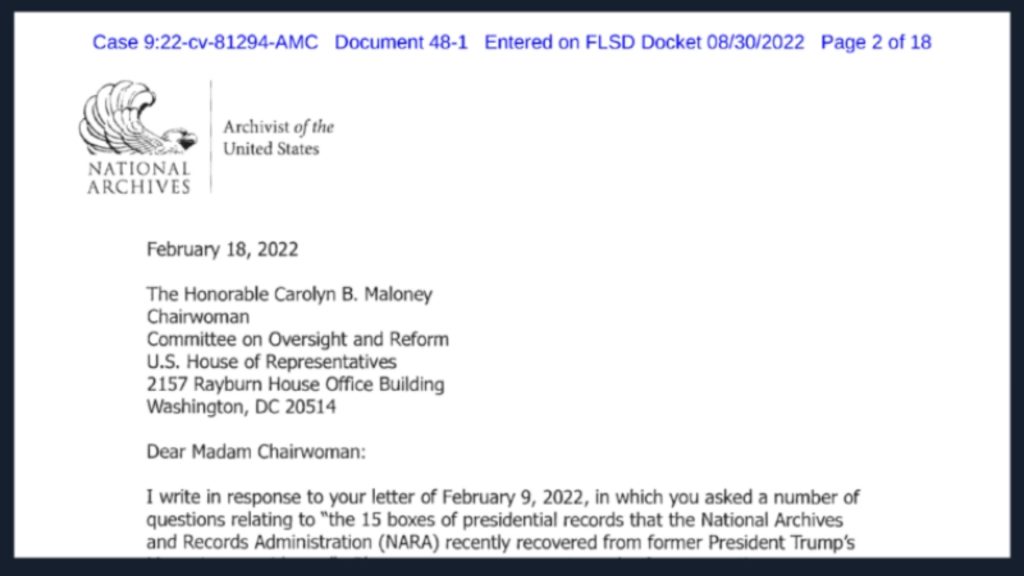
Her limited special master review allows the bulk of the probe to move forward unimpeded. While the saga still has many chapters left, Cannon’s decisions mark an incremental setback for Trump in his bid to impede the inquiry.





